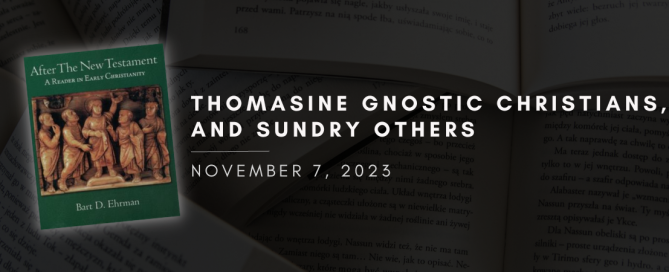Heresy and Orthodoxy
Paul’s *THIRD* Letter to the Corinthians? A Very Interesting Forgery
Even though we don’t have the forgeries of Pauline letters connected with Marcion (they’ve all been lost or destroyed by orthodox Christians), we have other letters forged in Paul’s name that appear to be opposing Marcion (you don't need to read the previous posts to make sense of this one; but if you want to learn more about Marcion -- see the two posts preceding). These surviving letters are forgeries written to oppose forgeries, an orthodox attempt to fight fire with fire. One of the most interesting is Paul’s alleged Third Letter to the Corinthians! Here’s what I say about it in my book Forged (HarperOne, 2011). ****************************** Third Corinthians It was quite common for “orthodox” Christians (that is, Christians who accepted the theological views that eventually became widely accepted throughout Christianity) to charge “heretics” (those who taught “false teachings”) with forging documents in the names of the apostles in order to support their views. We will see much more of this phenomenon in chapter five. The Gospel of Peter, for example, was charged with [...]


